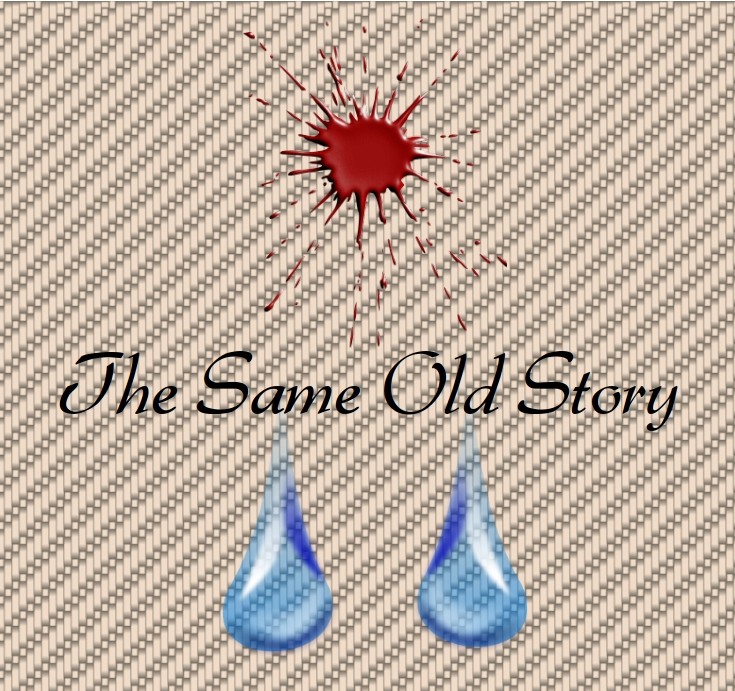
Cover image created using images from OpenClipart.
Once upon a time, the province of Bengal for known for its delicate fabrics with inticate designs. This cheap, yet elegant textile, was higly coveted by the European aristrocracy. However this was a problem for industrialists. The mass produced machine manufactured material could not compete with Bengal textiles in either price or quality. So, the British proceeded to destroy the textile industry in India using every barbaric method they could imagine, including breaking the thumbs of master weavers and destroying their looms.
Unfortunately, like the fabric they manufactured, their business too was delicate. Producing quality goods in the long run, just wasn’t enough. Violence, brutality and mediocrity won out.
And now once again, violence and brutality threaten our rich and vibrant Indian fabric.
This time I am talking about the delicate fabric of Indian society, with the intricate designs resulting from nuanced interactions between the variety and multitudes of people who call it home.
In 1947 the fabric of Indian society was ripped apart irreversibly. It was a tragic catastrophe in which millions pointlessly lost their lives. That was when we learned the dangers of prodding certain age old insecurities. While these insecurities are an integral part of Indian history, they lie deep in our memories unless someone chooses to exploit them, by repeatedly poking at old wounds to deliberately create discord.
The British shamelessly exploited these insecurities to their own advantages and now some others seek to do the same. Let’s not be fooled by this old formula again.
Four decades after partition, the wounds had almost healed. India became a nation that started investing in its future rather than dwelling in its past. Roots are important, and they will always be so, but they are not everything. A tree with strong roots is best equipped to reach for the sky and must fulfill its potential to reap the benefits of the strong roots.
This was the path India was on, until a sharp U-turn in our secular attitude. Unfortunately, as scars fade, so do the costly lessons they taught us. All of a sudden, values such as curiosity, intelligence, tolerance, open-mindedness, education that had served us so well in our slow but steady progress, came to be viewed with suspicion and hatred.
A rich and complex social fabric, with flaws no doubt, was being slowly woven on artisanal looms, when suddenly the machines of nationalism took over, aggressively selling a uniform, mass produced society.
The success of parochial nationalism, just like that of the British East India Company, relies on the use of violence and other crude methods of blackmail, deception and butchery. Corruption is rampant, but while in one case it was justified by profits, in the other it is veiled by a fuzzy concept of national pride which can be twisted to mean anything that those in power want it to. It can run amok resulting in incarceration of journalists and social workers, making a mockery of women and clamping down the voices of distressed people in riot stricken states.
That is not to say that I am not a proud Indian. I am proud of all the Indians who go to work diligently everyday, do their jobs, pay their taxes, innovate, build businesses, participate in the upkeep of local communities, contribute to the global community, educate their children to be thoughtful and kind. I am proud of several Indian women who have risked their careers and lives to stand up to divisive forces and corruption, just to improve the lives of girls growing up here. I am also proud of our rich cultural heritage spanning a multitude of languages and philosophies. After all, we were the original cultural melting pot.
But I do not mistake the Indian government for either India, its people, or its cultural heritage. India is too large, rich and complex to be contained in any one person, party or ideology. The government officials just happen to be the currently appointed or elected public servants.
Our jobs as citizens of a democracy is not to make celebrities of our elected officials, but to keep a watchful eye on them. Let’s not forget that we are the bosses of these public servants, and when we choose to overlook their crimes or negligence, or don’t hold them accountable for not doing their jobs well, then we are responsible for the decay of our country.
True and meaningful patriotism requires us, not to prostrate ourselves in front of elected officials, but hold them accountable. It is their job to engage with us, uphold the constitution and follow due process. Just like we would fire any employee who chooses to ignore our questions relating to their work performance, we must fire any government official who does the same.
And guess what? We can do just that. It’s why we have elections.
Also remember, bosses who let their employees get out of control, might lose their power and authority.
What do you think that could mean for the future of democracy in our country?
Think hard before you cast your vote. It can determine the fate of our country. Use it well.